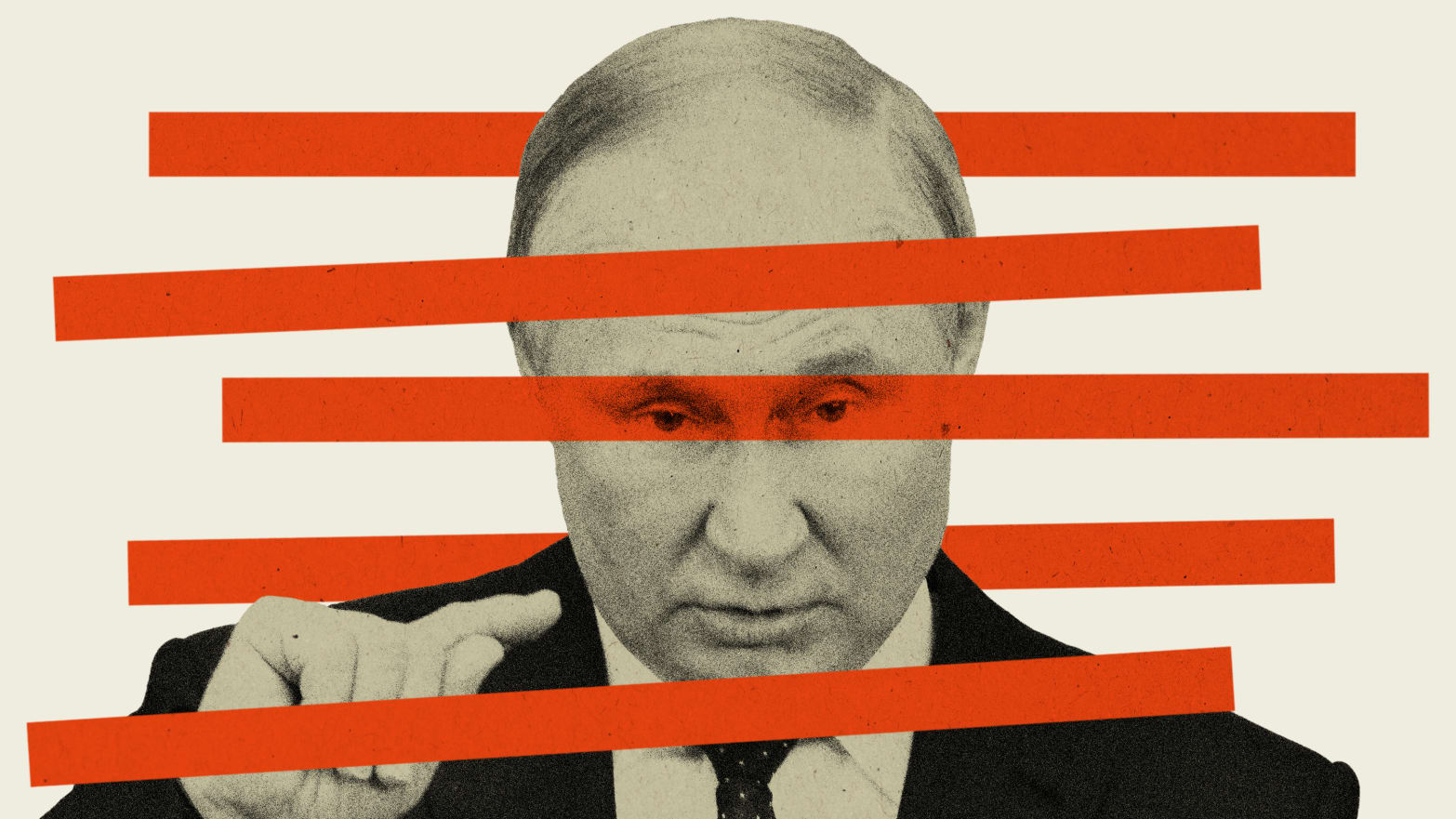In a recent interview with Russian state media outlet TASS, the head of the Russian Foreign Ministry’s North American Department, Aleksandr Darichev, said that in the event the U.S. designates Russia a state sponsor of terrorism, it would represent “a point of no return” in relations between the two countries. Speaking on behalf of the country that ruthlessly invaded its smaller neighbor and is continually being accused of human rights violations and serious war crimes, Darichev shamelessly claimed on Saturday that the West, led by the United States, “has trampled upon international law and absolute taboos in diplomatic practice.”
Appearing on the state TV show Sunday Evening With Vladimir Solovyov a day later, Foreign Ministry spokeswoman Maria Zakharova raged against the possibility of such a designation, claiming that these plans were caused by failure on the part of the U.S. to isolate Russia from the rest of the world. Zakharova derided the level of competency of the U.S. officials, questioning whether they even know how to read, since Moscow has repeatedly warned Washington of the “consequences” should the U.S. label Russia a sponsor of terror.
The bipartisan resolution to declare Russia a sponsor of terrorism passed in the Senate at the end of July, after being introduced by Sens. Lindsey Graham (R-SC) and Richard Blumenthal (D-CT). In the House of Representatives, Speaker Nancy Pelosi reportedly warned Secretary of State Antony Blinken that unless he moves ahead with the designation, Congress will pass appropriate legislation of its own accord.
Last week, the parliament of Latvia declared Russia a “state sponsor of terrorism” for attacks on civilians during the war in Ukraine, urging other countries to follow suit. Rihards Kols, who chairs the parliament’s foreign affairs committee, asserted: “Russia has for many years supported and financed terrorist regimes and organizations in various ways, directly and indirectly.” To illustrate that point, Kols brought up Russia’s involvement in Syria, its downing of the MH-17 flight over eastern Ukraine in 2014, and the 2018 poisoning of Sergei Skripal in the U.K.
Lithuania adopted a similar resolution in May and Estonia may soon do so as well. The prospect of this initiative gaining global traction terrified prominent talking heads on Russian state television.
The measure would add Russia to the list of such pariah states as North Korea, Iran, Syria, and Cuba, allowing global governments to expand the list of measures and sanctions to exert further pressure against Putin’s regime, including a ban on defense exports and additional financial restrictions. Prominent pundits and experts on Russian state TV clarified that the potential designation bothers Moscow the most not because of the damage to what is left of Russia’s reputation, but for legal and financial reasons.
Two weeks ago, Andrey Sidorov, deputy dean of world politics at Moscow State University, explained why Moscow is so apoplectic about being labeled the sponsor of terrorism: “Regarding the declaration of Russia as a sponsor of terrorism—they will most likely pass this legislation. Unquestionably, all the sanctions they can impose against us are already in place. That’s not the scary part. What’s going to hurt is that the families harmed by the country that is a sponsor of terrorism have the right to file claims in American courts. Masses of Ukrainian citizens will be able to file suits. Where will the resources come from to pay out these claims?”
Referring to $300 billion out of the $640 billion that Russia had in its gold and forex reserves, which have been frozen by Western sanctions, host Vladimir Solovyov opined: “They’re looking for the way to grab our $300 billion.” Sidorov agreed: “They’ll take that $300 billion pursuant to court orders.”
Russian experts openly cherish the idea of taking Ukraine’s vast mineral and energy resources, which they predict will boost Russia’s failing economy. In addition to stealing Ukraine’s riches, pro-Putin propagandists have been openly hoping to get their seized funds and properties back—even threatening nuclear strikes in order to secure their release. The prospect of losing these billions for good is infinitely more worrisome than any label Putin’s regime so richly deserves.
Solovyov, twice honored by President Vladimir Putin for his services to the Fatherland, proposed a solution: forcefully turning all Ukrainians into Russian citizens after taking over Ukraine in its entirety. While Russia’s genocidal objectives with respect to the neighboring country were obvious from the start, Moscow’s mouthpieces are now attempting to blame the West for their destruction of Ukraine.
Speaking of Ukrainian victims of Russian aggression, Solovyov said: “These families should not have the opportunity to file lawsuits in a court of law. They should become Russian citizens and the nation of Ukraine should completely disappear.” Earlier in August, appearing on the state TV show 60 Minutes, military expert Igor Korotchenko conceded that Russia wants to erase Ukraine off the map, because “it never really existed in the first place,” is perceived to be “anti-Russia” and therefore has no right to exist.
Regardless of the final outcome of Russia’s war against Ukraine, Moscow’s prospects as a global power are bleak. Appearing on the program Solovyov Live on Monday, Yevgeny Satanovsky, president of the Institute of the Middle East, noted with grim resignation, “With respect to the West as a whole, particularly where America, Europe or international organizations are concerned, Russia has nothing to hope for.”

